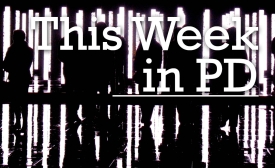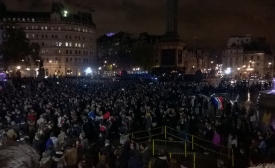isis
Repeatedly, Trudeau explained this past week that these were promises that he made to get elected, which were based on listening to Canadians. [...]"We are already seeing that soft power, not hard power, will define Mr. Trudeau's global security policies and international engagements."

PD News headlines focused on global reaction to the deadly terrorist attacks in Paris and the role of social media in public discourse.
In the wake of the devastating terrorist attacks in Paris on November 13, Paris residents took to Twitter to offer accommodation to the stranded using the hashtags #PorteOuverte and #OpenDoor […] As a communication tool, the crowdsourcing power of social media again proved to be effective […] But what does this support, the “cause” in Facebook's words, actually deliver?
So ISIS takes pop culture, or soft power, very very seriously indeed, even if we don't. The attacks on Paris demonstrate their cultural focus most of all. They attacked restaurants, theaters, and sports events rather than military or political targets […] The forces that will defeat ISIS aren't the army, the navy, and the air force; they're Twitter, Facebook, and YouTube. They have to involve themselves in the war.
There is one reaction that so exemplifies the current state of the networked world that it warrants closer analysis. That is the filmed declaration of Anonymous to take down ISIS. It is the epitome of the theory of Netpolitik, which Leshuo Dong and I wrote about earlier this year.
The perversion of Islam that IS represents must be addressed primarily by Muslims themselves, but such efforts should be supported by public diplomacy emanating from non-Muslim countries. There is no sure-fire fix, but among the most effective long-term programs for redirecting youthful energies are educational exchanges.
As I explore in a new Brookings paper, a major reason for this level of [ISIS's] recruiting success has been the group’s savvy use of propaganda and social media. Counter-messaging efforts, meanwhile, have been largely ineffective—in part because they are dwarfed by the sheer size of the ISIS communications footprint, but also because they have been too mono-dimensional and static.

On Paris, ISIS, and the implications for public diplomacy.







